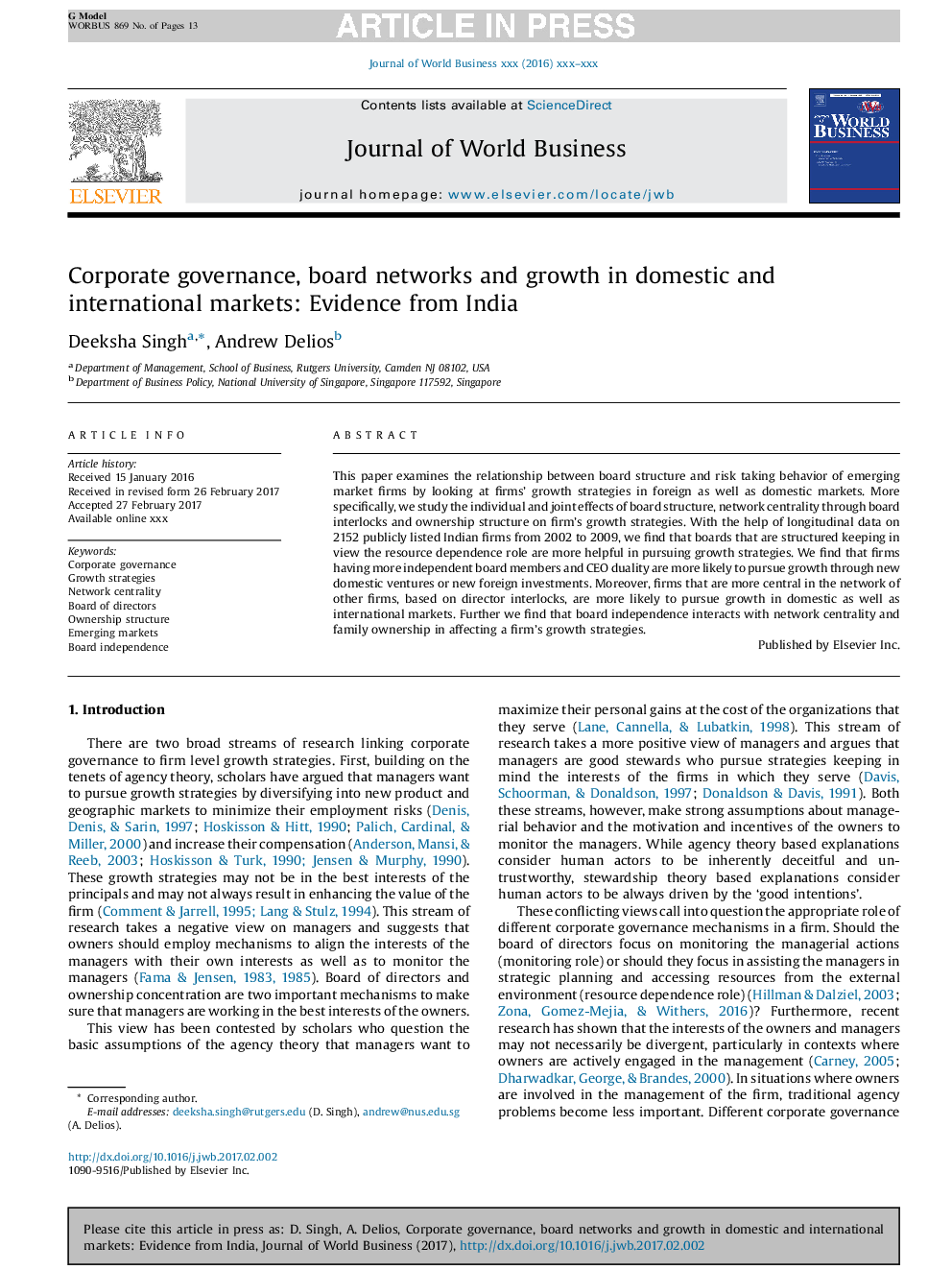| Article ID | Journal | Published Year | Pages | File Type |
|---|---|---|---|---|
| 5107096 | Journal of World Business | 2017 | 13 Pages |
Abstract
This paper examines the relationship between board structure and risk taking behavior of emerging market firms by looking at firms' growth strategies in foreign as well as domestic markets. More specifically, we study the individual and joint effects of board structure, network centrality through board interlocks and ownership structure on firm's growth strategies. With the help of longitudinal data on 2152 publicly listed Indian firms from 2002 to 2009, we find that boards that are structured keeping in view the resource dependence role are more helpful in pursuing growth strategies. We find that firms having more independent board members and CEO duality are more likely to pursue growth through new domestic ventures or new foreign investments. Moreover, firms that are more central in the network of other firms, based on director interlocks, are more likely to pursue growth in domestic as well as international markets. Further we find that board independence interacts with network centrality and family ownership in affecting a firm's growth strategies.
Keywords
Related Topics
Social Sciences and Humanities
Business, Management and Accounting
Business and International Management
Authors
Deeksha Singh, Andrew Delios,
